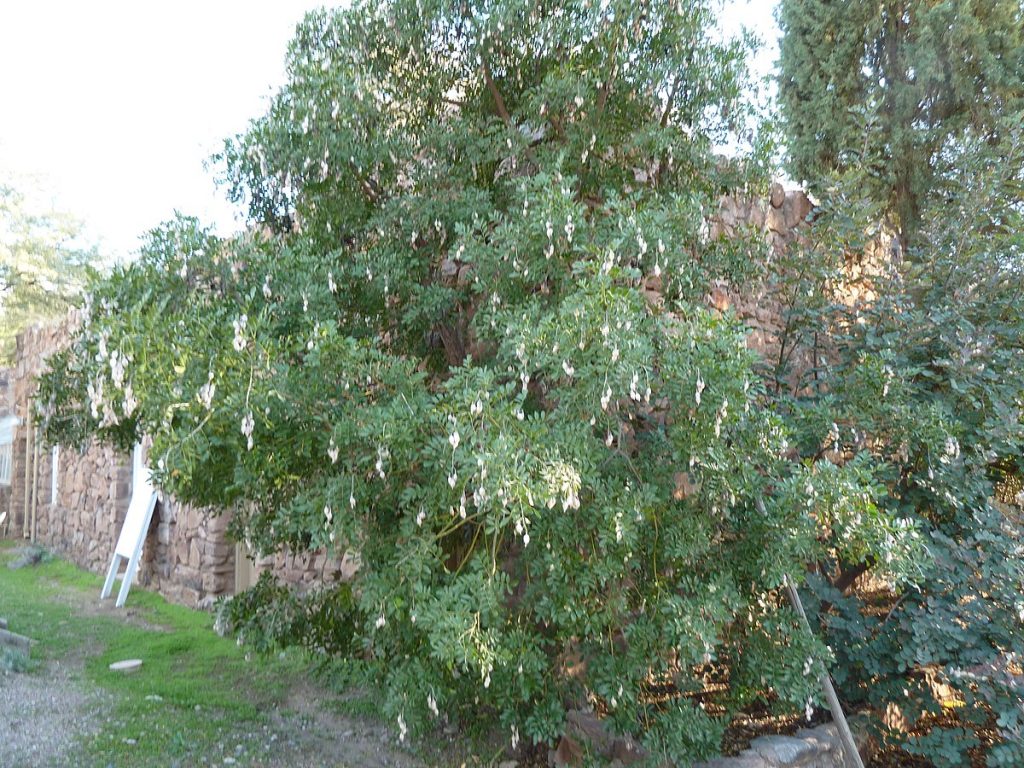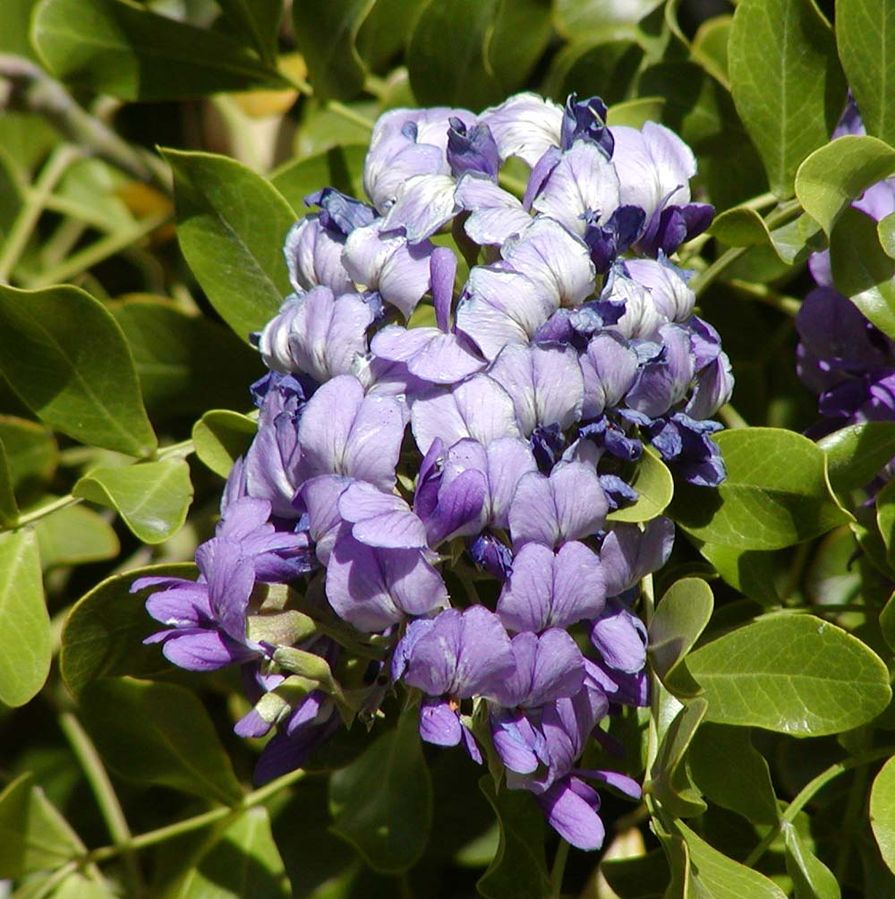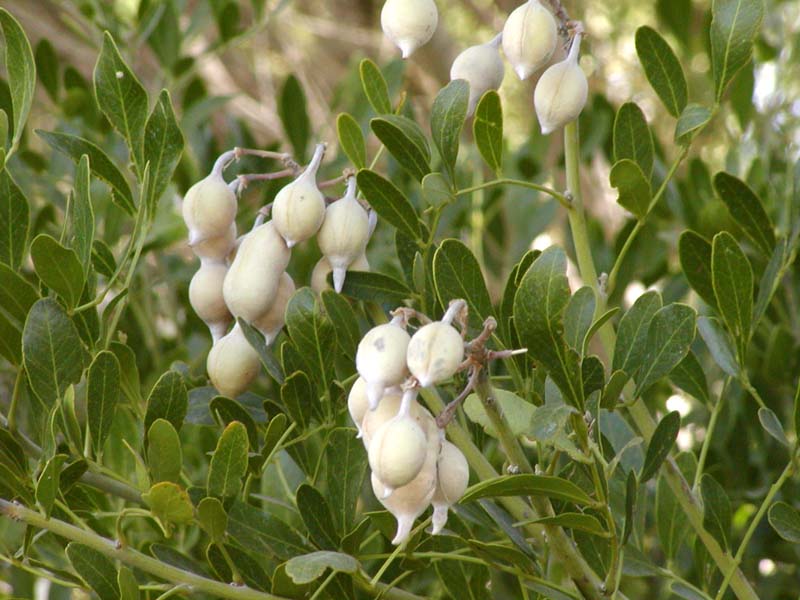
Also called mescal bean, this evergreen multi-trunked shrub or small tree is native to brushy slopes and open plains of Texas, New Mexico, and Mexico. It is a member of the legume family, Fabaceae, that also includes beans, mimosa, and black locust. The plant usually grows 10-15’ tall and has dark green, glossy, pinnately compound leaves with 7-9 leathery, 2” long leaflets. The pea-like, lavender blue flowers appear in drooping racemes 4-8” long from late winter to early spring They are very fragrant, and attract butterflies and bees. The dry, gray fuzzy seed pods that follow are up to 6″ long and contain red seeds that are valued by Native Americans for use in jewelry making. Texas mountain laurel is tolerant of drought, heat, wind and poor soil. It is an excellent choice for a xeriscape where it can be used as a hedge and in borders and foundation plantings. The seeds and flowers are considered poisonous. The genus name, Sophora, is the Arabic name for a pea-flowered tree. The specific epithet, secundiflora, comes from the Latin words secundus meaning second, and flos, meaning flower. Photo Credit Wendy Cutler Wikimedia Commons
Type: Evergreen shrub or small tree

Outstanding Feature: Flowers
Form: Rounded
Growth Rate: Slow
Bloom: Clusters of fragrant, pea-like lavender flowers from late winter to early spring
Size: 15-25′ H x 8-10′ W
Light: Full sun to part shade

Soil: Average, dry to medium moist, well-drained, alkaline to neutral
Hardiness: Zones 8-11
Care: Low maintenance
Pests and Diseases: None of significance
Propagation: Scarified seed, cuttings, layering, or grafting.
Outstanding Selections: None available
Photo Credits: Stan Shebs Wikimedia Commons